-
Posts
10,711 -
Joined
-
Last visited
Content Type
Events
Forums
Downloads
Quizzes
Gallery
Blogs
Posts posted by Social Media
-
-
- Popular Post
- Popular Post

As Truth Social grapples with declining stock prices following its recent public debut, a Donald Trump ally has unveiled plans to revitalize the platform. Devin Nunes, CEO of Truth Social and former GOP California congressman, shared details of upcoming changes during an appearance on the conservative network Real America's Voice.
Nunes announced significant updates aimed at enhancing Truth Social's appeal and functionality. Among the proposed changes is the integration of features reminiscent of popular social media platforms like Instagram, Facebook, Twitter, Reddit, and TikTok into a single app. Additionally, users will have access to television content within the Truth Social platform, including programming that may have been restricted or banned on other platforms.
The platform, which launched in February 2022, emerged as an alternative for individuals seeking an outlet after Trump's suspension from major social media platforms like X and Facebook following his posts about the Capitol riots. Despite its relatively modest user base of around 500,000 active users across iOS and Android platforms, Truth Social aims to carve out a niche in the digital landscape.
However, the platform's journey has been marked by challenges, particularly in the financial realm. Following its public listing through a merger with Digital World Acquisition Corp. (DWAC), Truth Social experienced a surge in stock value, reaching a peak of $71.9 per share. However, recent data from Google Finance indicates a significant decline, with each share now valued at $22.84.
Financial disclosures revealed substantial losses for Truth Social, raising concerns about its long-term viability. With revenue of just over $4.1 million and operating costs exceeding $58.2 million, the platform reported an operating loss of nearly $16 million. Auditors expressed doubts about the company's ability to sustain operations without significant improvements.
Despite these challenges, Nunes remains optimistic about Truth Social's prospects. He highlighted the platform's lack of debt, robust technological infrastructure, and a sizable cash reserve of $200 million. Nunes emphasized a strategic focus on expanding the platform's ecosystem through technology acquisitions and development while maintaining independence from traditional big tech companies.
As Truth Social navigates its financial and operational hurdles, the platform's future remains uncertain. However, with a commitment to innovation and adaptation, Nunes and his team aim to position Truth Social as a viable contender in the competitive social media landscape.
18.04.24
-
 3
3
-
- Popular Post

In the latest development ahead of November's presidential election, Joe Biden has emerged as the narrow frontrunner against Donald Trump, according to a recent poll conducted by Echelon Insights. The survey, encompassing 1,020 likely voters between April 12 and 14, revealed that 49 percent of respondents expressed a preference for Biden, while 46 percent favored Trump.
However, it's essential to note that the poll's margin of error of +/- 3.9 percentage points suggests a statistical tie between the two candidates.
Echelon Insights, the organization behind the survey, boasts a unique pedigree in political polling. Co-founded by former Republican digital strategist Patrick Ruffini and pollster Kristen Soltis Anderson, the firm's bipartisan credentials lend credibility to its findings. Despite its Republican roots, Echelon Insights' polling data indicates a competitive race between Biden and Trump, underscoring the unpredictability and closely contested nature of the upcoming election.
The results of this poll reflect the shifting dynamics of American politics, with Biden's marginally ahead position signaling a potential challenge for Trump's bid for reelection. As the campaign progresses and more data becomes available, these polling trends will continue to shape the narrative surrounding the presidential race, influencing strategic decisions by both candidates and providing insights into the preferences of the electorate.
18.04.24

-
 2
2
-
 1
1
-
 6
6
-
 7
7
-

The latest figures from the Office for National Statistics (ONS) reveal a notable decline in inflation in the United Kingdom, reaching its lowest level in two and a half years by March 2023. The drop, primarily driven by a further easing in food prices, saw consumer prices rise by 3.2% year-on-year, down from 3.4% in February. Though the decrease wasn't as substantial as economists had forecasted, it marks a positive trend since September 2021.
Despite inflation still exceeding the Bank of England's target of 2%, the trajectory suggests a promising direction. Following Russia's invasion of Ukraine, which triggered significant increases in energy costs and pushed inflation above 11% at the end of 2022, the recent decline offers a semblance of stability. Notably, the UK's inflation rate has now dipped below that of the United States for the first time in two years, with the US recording a higher inflation rate of 3.5% in March.
Looking ahead, economists anticipate a further drop in inflation in April, potentially falling below the 2% threshold. This projection stems from expectations of markedly lower domestic energy bills. Consequently, there is speculation that the Bank of England might contemplate reducing interest rates from the current 16-year high of 5.25%. However, policymakers remain cautious, foreseeing a resurgence in prices in the latter part of the year.
Simon Pittaway, a senior economist at the Resolution Foundation, anticipates a return to target inflation soon, suggesting mounting pressure for interest rate cuts. The Bank of England, like its counterparts globally, raised interest rates aggressively in late 2021 to counteract inflationary pressures exacerbated by supply chain disruptions during the pandemic and the geopolitical turmoil following Russia's actions in Ukraine. These rate hikes, aimed at cooling the economy by increasing borrowing costs, have contributed to a global downturn in inflation.
Against this backdrop, the UK's Conservative Party is hopeful that declining inflation and potential interest rate reductions may foster a positive sentiment among voters ahead of the upcoming general election. With opinion polls indicating a significant lead for the opposition Labour Party, the Conservatives, in power since 2010, are seeking to leverage economic improvements to bolster their electoral prospects. However, the outcome of the election, slated to take place by January 2025, remains uncertain amidst ongoing economic and political dynamics.
18.04.24

-
 1
1
-
-

In a significant legal development, an Ohio judge has temporarily halted the implementation of the state's ban on gender-affirming health care for minors, providing a preliminary victory for transgender youth seeking medical care. Franklin County Court of Common Pleas Judge Michael Holbrook, a Republican, issued a temporary restraining order against House Bill 68, which prohibits minors from accessing crucial treatments like puberty blockers, hormone therapy, and surgery. The law, which also prevents transgender women and girls from participating in female school sports teams, was set to take effect on April 24.
This decision comes after Ohio's Republican Governor, Mike DeWine, vetoed the bill in December, emphasizing the profound consequences it could have on transgender children and their families. Despite his veto, GOP lawmakers overrode it the following month. However, Judge Holbrook's ruling now puts a pause on the enforcement of the law, granting relief to transgender minors and their families while legal proceedings unfold.
Attorney General Dave Yost, a Republican, expressed confidence in the law's eventual vindication, emphasizing his commitment to defending it vigorously. Yost's stance aligns with the state's efforts to uphold what they perceive as the protection of children from irreversible decisions. However, the ACLU, ACLU of Ohio, and the law firm Goodwin, representing two transgender minors and their families, argue that the law violates constitutional principles of equal protection and single-subject rule.
In his opinion, Judge Holbrook highlighted the legislative maneuvering behind the bill's passage, noting the amalgamation of the gender-affirming care ban with unrelated provisions regarding transgender student-athletes. This merging raised concerns about the legislature's procedural integrity and led to doubts about the law's constitutionality. Holbrook's decision suggests that the plaintiffs are likely to succeed in proving that the law infringes on their constitutional rights, underscoring the irreparable harm they could suffer if the law were enforced.
While the ruling represents a victory for transgender Ohioans, the legal battle is far from over. The ACLU affirmed its commitment to continue challenging the law until it is permanently overturned. This lawsuit is part of a broader national debate on transgender rights and health care access, with similar legislation enacted in 24 states since 2021. Despite assertions from medical experts regarding the safety and necessity of gender-affirming care, legal challenges to these laws have yielded mixed outcomes, reflecting the ongoing complexity of the issue.
In light of recent developments, including the Supreme Court's decision to allow Idaho's ban on gender-affirming care to proceed, the legal landscape surrounding transgender rights remains uncertain. As Ohio navigates this legal challenge, the outcome will have significant implications not only for transgender youth in the state but also for the broader debate on LGBTQ+ rights and healthcare access nationwide.
18.04.24

-
 1
1
-
-

The aftermath of the tragic 2017 Manchester Arena bombing, which claimed the lives of 22 people and left hundreds injured, has taken a legal turn as families of the victims file a lawsuit against MI5, the British government intelligence agency. This legal action follows an independent public inquiry's findings that MI5 had missed crucial opportunities to prevent the attack, prompting outrage and demands for accountability.
Over 250 survivors and family members represented by three leading law firms have submitted a group claim to the Investigatory Powers Tribunal, seeking redress for MI5's failure to act on critical intelligence regarding the bomber. While the details of the lawsuit remain undisclosed due to its ongoing nature, it marks a significant step in holding security services accountable for their lapses in preventing terror attacks.
The lawsuit against MI5 presents a rare and challenging legal scenario, as it appears to be the first time the agency has been sued for its failure to thwart a terrorist incident. Such endeavors are known for their complexity and difficulty, often facing bureaucratic hurdles and legal intricacies. Similar efforts by families of victims of the September 11 attacks in the United States against the Saudi Arabian government have encountered obstacles in obtaining information on the actions of intelligence agencies preceding the tragedy.
The Manchester Arena bombing, perpetrated by Salman Abedi, an adherent of the Islamic State, shook the United Kingdom and underscored the threat posed by homegrown extremism. Abedi, who detonated a homemade explosive device outside the arena as concertgoers exited an Ariana Grande concert, had returned to the UK from Libya just days before the attack. The subsequent inquiry into the bombing revealed significant intelligence failures on the part of MI5, which could have potentially prevented the tragedy had it acted upon the information it possessed.
The lawsuit seeks to address these shortcomings and hold MI5 accountable for its lapses in preventing the attack. By filing with the Investigatory Powers Tribunal, the families of the victims aim to seek justice and obtain answers regarding MI5's handling of intelligence related to Abedi. The Tribunal, as an independent judicial body, has the authority to assess culpability, issue orders, and award compensation in cases involving complaints against the country's security services.
As the legal proceedings unfold, questions linger about the efficacy of intelligence agencies in preventing terror threats and the extent of their accountability in the event of failures. The lawsuit against MI5 underscores the importance of transparency, accountability, and the pursuit of justice in addressing security lapses and safeguarding the lives of citizens.
18.04.24

-
- Popular Post

The recent high court decision upholding a London school's ban on prayer rituals has sparked a contentious debate surrounding religious freedom and the role of faith in the education system. Michaela Community School in Brent, known for its stringent disciplinary policies, faced legal action from a Muslim pupil, identified only as TTT, who argued that the ban infringed upon her right to religious expression.
In a written judgment, Mr Justice Linden dismissed the pupil's claims, affirming the school's prerogative to maintain a secular environment conducive to learning. The ruling was met with praise from government officials, including Rishi Sunak and Kemi Badenoch, who hailed it as a victory against attempts to undermine public institutions.
The controversy stems from Michaela's decision to implement the prayer ban last year following threats of violence over its approach to religious observance. Founder Katharine Birbalsingh, often dubbed "Britain's strictest headteacher," defended the policy as essential for fostering an inclusive learning environment. However, the pupil argued that the ban had left her feeling alienated and marginalized as a Muslim in the UK.
Critics of the ruling, including the Runnymede Trust and Dr. Abdul-Azim Ahmed of the Muslim Council of Wales, expressed disappointment, asserting that it undermined the principle of freedom of religion. They argued that the ban disproportionately affected Muslim students and perpetuated a culture of discrimination.
Despite the court's decision, the pupil and her family remained steadfast in their belief that challenging the ban was the right thing to do. Birbalsingh welcomed the ruling as a victory for school autonomy, emphasizing that institutions should be free to determine their own policies without interference.
However, the case has raised broader questions about the role of faith in education and the balance between religious freedom and inclusivity. Humanists UK chief executive Andrew Copson called for careful consideration from the government, urging policymakers to safeguard children's freedom of religion while ensuring that schools remain fair and inclusive spaces for all students.
As the debate continues, the implications of this ruling could extend beyond Michaela Community School, prompting a reevaluation of faith-based practices in state schools across England. In an increasingly diverse society, finding a balance between respecting individual beliefs and promoting inclusivity remains a complex and pressing challenge for educators and policymakers alike.
18.04.24

-
 1
1
-
 2
2
-
 1
1
-
 1
1
-
 1
1
-

The European Parliament's recent resolutions condemning the United Nations Relief and Works Agency (UNRWA) for its role in promoting violence and antisemitism in Palestinian textbooks have sparked significant debate and reflection on the state of education in the Palestinian territories. These resolutions come in the wake of Hamas' heinous massacre on October 7, which targeted Israeli civilians across southern Israel.
In a bold move, the European Parliament explicitly pointed out the troubling contents of Palestinian textbooks issued by UNRWA, citing them as contributing factors to the violent actions perpetrated by Hamas. German Member of European Parliament (MEP) Niclas Herbst underscored the urgency of addressing this issue, emphasizing that education laden with hatred and incitement has dire consequences for both Israeli security and the future prospects of young Palestinians.
The resolutions signal a turning point in European discourse regarding the Palestinian education system, particularly its connection to extremist ideologies and acts of violence. By calling for increased scrutiny and oversight of funds allocated to Palestinian education, the European Parliament is advocating for a fundamental restructuring to ensure that antisemitic themes are eradicated from curricula in Palestinian schools.
Central to this debate is the role of UNRWA, which has long been criticized for perpetuating antisemitism and glorifying terrorism through its textbooks. These materials, ranging from mathematics to theology, consistently promote hostility towards Jews and Israel, indoctrinating impressionable young minds with the notion of martyrdom and perpetual conflict. The normalization of violence and the demonization of Israelis undermine any prospects for peaceful coexistence and perpetuate a cycle of hatred and animosity.
Organizations like the Institute for Monitoring Peace and Cultural Tolerance in School Education (Impact-se) have been at the forefront of highlighting the detrimental effects of Palestinian curricula on the Israeli-Palestinian conflict. Their research has revealed the systemic indoctrination present in Palestinian textbooks, which cultivates an environment conducive to acts of terror and extremism.
Recent revelations regarding the involvement of UNRWA educators in Hamas-led atrocities further underscore the urgency of addressing these issues. The European Parliament's recognition of the link between education and violence represents a significant step towards fostering a more nuanced understanding of the Israeli-Palestinian conflict and advocating for meaningful change.
Moving forward, it is imperative for international bodies and donor countries to prioritize educational reform in the Palestinian territories. This includes not only addressing the immediate concerns raised by the European Parliament but also promoting values of tolerance, coexistence, and mutual respect in educational curricula. By investing in education that fosters understanding and reconciliation, rather than perpetuating hatred and division, we can pave the way for a more peaceful and sustainable future in the region.
18.04.24

-

The House of Representatives recently took a significant step in condemning the use of a particular phrase often associated with Palestinian activism. In a vote of 377-44-1, the House adopted a resolution targeting the phrase "from the river to the sea, Palestine will be free," considering it as antisemitic. This rallying cry has been at the center of contentious debates, particularly regarding its implications for Israel's existence and the Israeli-Palestinian conflict.
The resolution's passage comes after months of heated discussions, with Rep. Rashida Tlaib's (D-Mich.) use of the phrase drawing considerable attention. Tlaib faced censure in November after sharing a video on the social platform X that featured protesters chanting the controversial slogan. Her defense of the phrase as an "aspirational call for freedom" rather than a call for violence or hate stirred further debate, highlighting the complexities surrounding its interpretation.
While Tlaib and some progressives argue that the phrase symbolizes the aspiration for Palestinian freedom and rights, critics, including the Anti-Defamation League and the American Jewish Committee, view it as inherently antisemitic. They contend that its invocation undermines Israel's legitimacy and promotes the idea of eliminating the Jewish state. The phrase's reference to the geographic area between the Jordan River and the Mediterranean Sea is seen as erasing Israel from the map and denying its right to exist.
The resolution's supporters argue that condemning the phrase is crucial for upholding Israel's security and opposing antisemitism. Rep. Gregory Meeks (D-N.Y.), while acknowledging the divisive nature of the resolution, emphasized the importance of addressing the dangers posed by the phrase. He expressed his support for the resolution, despite reservations about its necessity, underscoring the need to take a firm stance against language that threatens Israel's existence.
However, the resolution's passage did not occur without dissent. Tlaib, consistent with her previous stance, voted against the resolution, reiterating her belief in the phrase's peaceful connotations. Additionally, Rep. Madeleine Dean (D-Pa.) opted to vote "present," citing concerns about partisan maneuvering on the issue. Dean highlighted the need for substantive action to support allies and provide humanitarian aid, criticizing what she viewed as political gamesmanship by Republicans.
The debate surrounding the resolution reflects broader divisions within Congress and the American political landscape regarding the Israeli-Palestinian conflict. While the majority of lawmakers support a two-state solution as the path to peace, disagreements persist over the means to achieve it and the language used in advocating for Palestinian rights.
As tensions persist in the Middle East and debates continue in Washington, the House's resolution condemning the controversial phrase serves as a reminder of the complexities surrounding the Israeli-Palestinian conflict and the challenges of navigating sensitive issues of identity, sovereignty, and human rights on the global stage.
18.04.24

-
 1
1
-
-

A segment of the International Space Station (ISS) unexpectedly made an abrupt return to Earth, crashing into a residence in Naples, Florida, last month, as revealed by NASA in a press release on Monday.
The incident traces back to March 2021 when a cargo pallet carrying aging batteries was intentionally released from the ISS. Typically, such releases are designed for the pallet to disintegrate upon re-entry into Earth's atmosphere. However, contrary to expectations, a portion of the pallet failed to burn up and instead plummeted to the ground, landing in Naples on March 8 of this year. NASA confirmed that the debris weighed approximately 1.6 pounds.
Initial coverage of the event was reported by WINK News, a local CBS News affiliate, bringing attention to the extraordinary occurrence. The impact, which tore through the home of Naples resident Alejandro Otero, caused significant damage to the property. Fortunately, no one was injured during the incident, though the shockwaves reverberated throughout Otero's family, leaving them shaken by the unexpected turn of events.
The cylindrical piece, measuring 1.6 inches wide and about 4 inches tall, was later identified and confirmed by NASA experts at the Kennedy Space Center in Florida. According to NASA's assessment released on Monday, the object was identified as a stanchion from the agency's flight support equipment, originally used to secure batteries onto the cargo pallet.
In response to this unusual event, NASA has announced plans for an investigation to understand why the debris managed to survive re-entry into the Earth's atmosphere. The agency's specialists will employ advanced engineering models to analyze the factors contributing to the debris's resilience during atmospheric re-entry. These models, crucial for predicting the behavior of objects during re-entry, rely on precise input parameters and are regularly updated based on real-world observations.
The unexpected crash serves as a reminder of the complexities involved in space exploration and debris management. While the incident underscores the need for continued vigilance and refinement in space operations, NASA remains committed to ensuring the safety and integrity of space missions and the well-being of communities on Earth.
18.04.24

-

The grim reality of Russia's military operations in Ukraine has been laid bare by the revelation that over 50,000 Russian soldiers have lost their lives in the conflict, confirming the devastating toll of Moscow's aggressive tactics. The BBC, in collaboration with Mediazona and volunteers, meticulously documented the casualties, shedding light on the human cost of the so-called "meat grinder" strategy employed by Russian forces.
The term "meat grinder" aptly describes the relentless and indiscriminate nature of Russia's approach, characterized by waves of soldiers sent forward in an attempt to overwhelm Ukrainian forces and gain strategic advantages. This strategy has resulted in staggering casualty figures, with the death toll surpassing official acknowledgments by a significant margin.

The analysis revealed that the second year of combat saw a nearly 25% increase in fatalities compared to the first, underscoring the intensification of hostilities and the escalating human tragedy. The spike in deaths coincided with major offensives and battles, highlighting the ferocity of the fighting and the high stakes involved.
Volunteers and investigators painstakingly tracked new military graves across Russia, providing poignant evidence of the conflict's toll on families and communities. The expansion of cemeteries and the influx of fresh graves underscored the magnitude of the loss and the widespread impact of the war.
One of the most disturbing aspects of the conflict is the recruitment of prison inmates as cannon fodder for Russia's military campaigns. Under the auspices of private military groups like Wagner and, later, the defense ministry, these prisoners-turned-fighters are thrust into battle with inadequate training and equipment, facing almost certain death on the front lines. The revelation that prisoners are sent to fight without proper gear or even functioning rifles exposes the callous disregard for their lives by military commanders.
The testimonies of survivors and relatives paint a harrowing picture of the brutal reality faced by those caught up in Russia's war machine. Stories of prisoners being coerced into service, deprived of basic necessities, and ultimately sacrificed for strategic gains highlight the human tragedy unfolding in Ukraine.
As the conflict enters its third year, the toll on both sides continues to mount, underscoring the urgent need for a diplomatic resolution to end the bloodshed and restore peace to the region. The international community must not turn a blind eye to the suffering inflicted by Russia's military aggression and must redouble efforts to support Ukraine and hold Moscow accountable for its actions. Only through concerted action can the cycle of violence be halted, and the path to reconciliation and recovery be forged for the people of Ukraine.
18.04.24

-

The harrowing testimony of Boeing engineer Sam Salehpour before US lawmakers shed light on the immense challenges faced by whistleblowers within the aviation giant. Salehpour's account, delivered on Wednesday as part of a congressional inquiry into safety practices at Boeing, revealed a troubling pattern of harassment and intimidation following his attempts to raise safety concerns regarding the company's aircraft.
Salehpour detailed instances of hostility and retribution he faced after voicing apprehensions about alleged manufacturing shortcuts, spanning a three-year period beginning in 2020. His disclosures were met with dismissal and admonition, with superiors urging him to remain silent to avoid delays. Despite his persistent efforts to highlight potential safety hazards, Salehpour encountered resistance and was eventually transferred to a different role within the company—a move that appeared punitive in nature.
During his testimony, Salehpour painted a grim picture of Boeing's organizational culture, characterized by a lack of receptiveness to employee feedback and a disregard for safety protocols. He lamented the absence of a genuine safety culture where employees are encouraged to raise concerns without fear of reprisal. Salehpour's emotional recounting underscored the profound toll that whistleblowing took on his well-being, exemplified by incidents such as his tire being punctured by a nail—an occurrence he suspected was linked to his whistleblowing activities.
The congressional hearing, chaired by Senator Richard Blumenthal, signaled a critical juncture in Boeing's accountability for its safety practices. Blumenthal emphasized the gravity of the allegations against Boeing, describing them as "serious" and "shocking." He pledged to conduct a thorough investigation into the company's safety culture, stressing the need for transparency and accountability.
Boeing, in response to Salehpour's allegations, reiterated its commitment to fostering a safe and inclusive work environment. However, Salehpour's testimony, coupled with corroborating accounts from other whistleblowers, painted a troubling portrait of systemic issues within the company.
The hearing shed light on the broader implications of Boeing's safety lapses, extending beyond individual incidents to encompass the company's overall approach to safety and compliance. As Boeing grapples with mounting scrutiny and legal challenges, stakeholders are increasingly demanding accountability and decisive action to address systemic shortcomings.
For Salehpour and other whistleblowers, the journey towards justice and accountability remains fraught with challenges. Their courage in speaking out against corporate malfeasance serves as a beacon of hope for accountability and reform within the aerospace industry. As lawmakers continue to scrutinize Boeing's practices, Salehpour's testimony stands as a poignant reminder of the imperative to prioritize safety and integrity in all aspects of aviation.
18.04.24

-
 1
1
-
-
Topic Reminder: "BREAKING NEWS! Iran potentially triggers World War 3"
There are many other topics on the Israel/Hamas war here https://aseannow.com/forum/432-the-war-in-israel/
-
- Popular Post
- Popular Post

The moment I saw what happened during the Hamas-led attack on October 7 – the horrendous massacre of more than 1,000 Israelis – I knew Gaza as we knew it would cease to exist. The Israeli war that has ensued since then has been nothing short of a disaster. Most of the Strip’s infrastructure and housing stock has been destroyed to some degree by Israeli bombs, and entire families have been wiped out in a campaign that, at times, appears indiscriminate.
I have experienced this up close with the loss of more than 31 of my family members to Israeli airstrikes on both of my childhood homes, in Gaza City and Rafah. My entire family is now homeless and several of its members have been permanently maimed. Allegations of Israel using AI tools to target Palestinians based on their probability of being a militant are particularly disturbing. For weeks, I have desperately sought even the slightest of explanations for what could have justified the airstrikes on my family homes, which killed dozens of women, elderly people and children as young as three and four months old.
I know my family well and have kept in close contact with them since leaving Gaza; they are not involved with Hamas. But perhaps, along with many other civilians across Gaza, they fell victim to error-prone technology that accelerated targeting acquisition for political purposes with little regard for sparing civilian lives.

The scale of needless death and destruction in Gaza – along with Israeli military and settler violence in the West Bank, which preceded October 7 – has enraged the global conscience and pro-Palestine advocates and activists, and rightly so.
The problem, however, is that those energies are not being harnessed constructively, in a way that would promote the best interest of Gazans beyond freeing them from Israeli oppression. Instead of rejecting violence and acknowledging Hamas’s destructive impact on the Palestinian people, some have fuelled hateful rhetoric against co-existence with Jews and Israelis, and given new life to the narrative that Hamas champions.
Within the pro-Palestine discourse, there is little space for diverse opinions and thoughts, with any dissent or difference of opinion being labelled treacherous and cowardly. Some of the very people who regularly tell us how Arabs and Muslims are not monolithic are quick to dismiss diverse views and enforce rigid conformity of what it means to be pro-Palestine and what a resolution to the conflict should entail.
There has also been a clear and indisputable rise in overt anti-Semitism and an irresponsible attempt in many corners to hold all Jewish people accountable for the actions of Israel.
I was appalled by the failure of many who claim to support Palestinian rights to see and acknowledge the humanity of the Israeli civilians who were mercilessly and randomly killed without any regard for the legal, moral and even religious protections they should have been afforded as non-combatants.
Some were quick to proclaim that all Israelis are guilty of occupation and are complicit in the injustices against the Palestinian people and, therefore, they’re all legitimate military targets. This twisted thinking is not only unethical, but it is comparable to some subsequent proclamations by Israelis that there are no innocent civilians in Gaza.
The mutual dehumanisation between many Israelis and Palestinians since then is one of the primary reasons to speak out against Hamas, the war and the binary narrative that has taken shape. Hamas and its leader, Yahya Sinwar, have helped to drag Gazans into that war without any strategic vision beyond violent extremism and messianic nihilism.
Having grown up in Gaza, I experienced Hamas’s rise to power and their gradual grip over the Strip and Palestinian politics and society, hiding behind a resistance narrative and using extremist politics to sabotage prospects for a peaceful resolution to the conflict with Israel. Months before October 7, tens of thousands of Gazans protested in the streets in defiance of Hamas, just as they had in 2019 and 2017.
The “We Want to Live” protest movement decried living conditions and unemployment in Gaza, as well as the lack of a political horizon for meaningful change in the territory's realities and opportunities. Hamas’s regime consisted of a criminal and despotic enterprise that used Gaza as a haven for the group's members and affiliates and turned Palestinians there into aid-dependent subjects reliant on the international community. Hamas enriched itself in the process of turning Gaza into a “resistance citadel” that was part of a nefarious regional alliance with Iran.
The blockade on Gaza after Hamas’s takeover in 2007 is in no small part the result of its violent decisions that bore terrible consequences for the people while the group insulated itself from the consequences. One cannot separate the injustices experienced by Palestinians in Gaza due to Israeli policies from Hamas’s role as a governing administrative body that also wants to operate as a militant resistance group simultaneously.
When asked at the beginning of the war why Hamas never built a single bomb shelter for civilians, one of the group’s senior leaders, Musa Abu Marzouk, said Hamas builds tunnels to protect themselves but that the protection and well-being of Gazans is the responsibility of the UN and the international community.
This attitude sums up almost two decades of Hamas’s rule in Gaza, in which the group instigated futile wars with Israel that failed to liberate an inch of Palestinian land and would instead get Gazans killed and batter the Strip. Hamas would then benefit from the reconstruction funded by the international community and the work of humanitarian NGOs, absolving itself from its governance responsibilities and facing little consequences for its violent and destructive actions.
Though the Israel and Palestine issue has always entailed divisive politics, high tensions, and difficult dynamics, the discourse has become incredibly toxic since October 7 – having effectively broken down completely. Both sides are so entrenched in their respective narratives that little to no dialogue or constructive engagement has taken place. Unfortunately, some pro-Palestine activism has been dominated by extreme voices that have normalised Hamas’s actions against civilians, claiming it to be a natural expression of resistance and an inevitable result of occupation. Protests, university campuses and social media are full of rhetoric and slogans promoting the armed resistance narrative and framing dialogue, co-existence and peace as cowardly and undesirable.
Those voices have obfuscated Hamas’s culpability and have understated Palestinian authorities’ own agency and consistent leadership mistakes and errors that have contributed to the failure of the Palestinian national project. Much of the Pro-Palestine activism, as it stands today, has been largely ineffective in promoting pragmatic options that actually help the Palestinian people and improve their prospects beyond feel-good proclamations and statements. While many are motivated by sincere feelings of sympathy for the terrible suffering in Gaza, they are often misinformed about the realities of Hamas, its governance and its alliances.
Most also overlook just how useful Hamas has been to Israeli Prime Minister Benjamin Netanyahu’s Machiavellian and anti-Palestinian designs. Mr Netanyahu has long leveraged the group as a means to keep the Palestinians politically divided and prevent the establishment of a Palestinian state. Hamas has played that role dutifully by sabotaging an imperfect yet viable peace process, thereby empowering right-wing extremists in Israel.
Since October 7 I have spoken out against both Hamas and the conduct of the war, and engaged with Jewish and Israeli audiences, some of whom are hearing a Palestinian voice and perspective for the first time. An intellectual renaissance is sorely needed in the pro-Palestine movement, to build new alliances with Jewish and Israeli audiences and to develop a substantially different ethos based on pragmatism and the end of zero-sum rhetoric and mutually exclusive approaches.
My experience, even amid an immensely destructive and harrowing war that is annihilating Gaza, is that it is possible to be pro-Palestine while maintaining the humanity of Israelis who have a right to live in safety and security, just as the Palestinian people have an undeniable right to live free from military occupation and perpetual dehumanisation by extremist policies.
Finding the slightest common ground is not easy, but it is fully attainable and possible. This requires pragmatic compromises and realising that time is not on the Palestinian people’s side. The world is growing tired of having to rebuild Gaza every few years. While I can understand how it can be difficult for many in Gaza and the West Bank to see things differently (although many do not) because of the day-to-day struggles of life under an unjust occupation, it is frustrating and disheartening when so many diaspora allies, intellectuals, academics and activists fail to change course and try something different.
It is incumbent upon those of us who have privilege and access to safety, resources and free expression to speak up and out and help the Palestinian people develop a new programme and movement that propels their just and urgent cause forward. One only needs to look to other parts of the Arab world and the destructive impact of extremism since the Arab uprisings in 2011 to realise the incompatibility of groups like Hamas and the Muslim Brotherhood with the aspirations of the masses in the post-colonial modern world.
What is needed is a comprehensive rebranding and rejuvenation of what peace actually means in a Palestinian context – a definition that stands apart from what has been offered by Palestinian leaders. It involves a pragmatic acceptance that after 75 years of setbacks, Israel’s people are there to stay, and we must find a way to establish a shared future that embraces and acknowledges each other's mutual existence.
Naturally, this will also require significant steps by the Israeli government and people to acknowledge the rights of Palestinians to exist on their land as sovereign people and to reverse decades of an expanding occupation. Many Israeli politicians often point to Gaza under Hamas as evidence of the failure of Palestinian control – how it doesn’t lead to peace and instead results in perpetual violence and terrorism. But a post-Hamas Palestinian leadership must view the reconstruction of Gaza after the war as an opportunity to prove and demonstrate the viability of the kind of governance of which Palestine is truly capable: one that can effectively usher in an independent and sovereign state.
Indeed, peace can and must be rebranded as the only way to prevent further death and occupation of Palestinian lives and land – peace is courageous and worthy of pursuing.
18.04.24

-
 2
2
-
 1
1
-

Amidst a turbulent political landscape, Speaker Mike Johnson (R-La.) is boldly pushing forward with a comprehensive foreign aid package despite facing fierce opposition from within his own party. The ambitious initiative, aimed at providing critical military support to Ukraine, Israel, and Taiwan, has garnered early Democratic support while igniting a firestorm of dissent among Republicans.
Johnson's strategy encompasses a multipronged approach, offering separate votes on military assistance to key allies alongside a broader Republican national security agenda. However, the plan has triggered a backlash from various factions within the GOP, including spending hawks concerned about the national debt, isolationists prioritizing domestic issues, and border security advocates disappointed by the omission of tougher measures.
The Speaker's leadership has come under intense scrutiny, with Rep. Marjorie Taylor Greene (R-Ga.) leading the charge to oust him from power. Greene's resolution to remove Johnson is looming over the upcoming votes on Ukraine, threatening to escalate tensions within the party. Rep. Thomas Massie (R-Ky.) has pledged support for Johnson's removal if Greene's resolution advances, highlighting the growing rift among Republicans.
Despite the mounting opposition, Johnson remains steadfast in his commitment to the foreign aid package, dismissing the ouster effort as "absurd" and focusing on fulfilling his duties as Speaker. His recent endorsement by former President Trump at Mar-a-Lago provided a significant boost, offering reassurance amidst the turmoil.
While Johnson faces internal challenges, he has found unexpected support from Democrats eager to advance the aid package. However, concerns remain about the inclusion of certain provisions and the exclusion of border security measures, further complicating the legislative process.
The GOP's reaction to Johnson's plan has been mixed, with conservatives praising the opportunity for separate votes while criticizing the omission of key priorities. Johnson's decision to prohibit border security amendments has fueled frustration among hard-liners, highlighting the delicate balancing act he faces within his party.
Despite the discord, no other Republicans have publicly joined Greene and Massie in their push to remove Johnson. Many are wary of the potential consequences of such a move, opting instead to voice their grievances internally.
As tensions escalate within the GOP, Johnson's leadership is put to the test. With the fate of the foreign aid package hanging in the balance, the Speaker navigates a precarious political landscape, seeking to unite his fractured party while advancing key national security objectives.
17.04.24

-
 1
1
-
-

Nigel Farage has condemned what he describes as "cancel culture" following the police's intervention to shut down the National Conservatism conference in Brussels. The conference, which featured speakers such as Hungary's Viktor Orban and Conservative MPs Suella Braverman and Miriam Cates, was disrupted by local officials who cited concerns about public safety.
The Mayor of Brussels district Saint-Josse-ten-Noode, Emir Kir, issued an order banning the conference, stating that the far-right is not welcome in the area. However, conference organizers have contested this decision, arguing that there was no public disturbance and no valid reason to shut down the event.

Police arrived at the venue during the event, but did not force attendees to leave immediately. Instead, they implemented measures to prevent new participants from entering. This marks the third venue change for the conference, with previous locations canceling due to alleged political pressure.

Farage criticized the shutdown, emphasizing that the conference attendees were peaceful and respectable individuals. He accused authorities of attempting to suppress a particular ideology rather than addressing any genuine public safety concerns.
Tory MP Suella Braverman, one of the scheduled speakers, condemned the police's actions, asserting that they were undermining free speech. She defended her presence at the conference, stating that she intended to discuss important issues such as border security.

The National Conservatism movement, characterized by its advocacy for traditional values, has faced criticism in the past. Some of its speakers have been accused of promoting divisive and dangerous ideologies. However, proponents argue that they are defending essential principles against perceived threats.
The incident in Brussels echoes previous disruptions at National Conservatism events, including protests and venue cancellations. Despite the challenges, speakers like Braverman and Cates have continued to participate in these conferences, highlighting issues they believe are crucial to address.
The clash between free speech and perceived extremist ideologies underscores the ongoing debate surrounding political discourse and public gatherings. As authorities navigate these tensions, questions remain about the limits of expression and the role of government intervention in regulating public events.
17.04.24

-
 1
1
-
-

The White House has firmly rejected an invitation for President Biden to testify before House impeachment investigators, asserting that the investigation is essentially concluded. In a letter conveyed through attorney Richard Sauber, President Biden's special counsel, the administration rebuked the ongoing impeachment inquiry led by House Oversight Chair James Comer (R-Ky.), dismissing it as a baseless pursuit lacking in factual merit.
Sauber's letter, obtained by The Hill, condemned the impeachment investigation spearheaded by Comer, highlighting its failure to substantiate any wrongdoing by President Biden. It criticized Comer's persistence in promoting unfounded allegations despite ample evidence to the contrary, accusing the committee of disregarding factual realities.
Comer's initial letter to President Biden, sent in March, was criticized for containing dubious claims aimed at implicating the president in alleged improper business dealings involving family members. The letter also underscored Comer's focus on scrutinizing President Biden's past involvement in Ukraine, an aspect that has drawn increased attention following the recent arrest of a former FBI informant for fabricating allegations against Biden.
Sauber's response emphasized Comer's discussion of potential criminal referrals rather than pursuing impeachment charges, suggesting that the impeachment inquiry had reached an impasse. The letter highlighted dwindling support for the impeachment effort within the GOP ranks and questioned the viability of the evidence gathered by Comer and his fellow investigators.
While Comer had suggested President Biden testify, the administration's refusal to comply was clear. Comer criticized Biden's reluctance, drawing parallels to Hunter Biden's refusal to testify publicly about alleged corrupt practices. He lamented the president's unwillingness to address pertinent questions regarding his interactions with his son's business associates, including Mykola Zlochevsky, a key figure in the Ukraine energy sector.
In response, Comer expressed disappointment at President Biden's refusal to engage with the investigative process openly, urging transparency and accountability from the administration. He reiterated the importance of addressing the inquiries raised in the invitation, emphasizing the need for clarity on matters concerning potential corruption within the Biden family.
As the impeachment inquiry continues to face skepticism and waning support, the standoff between House investigators and the White House underscores the partisan divisions and political tensions surrounding the issue. Despite the administration's dismissal of the investigation, questions persist about the extent of President Biden's involvement in alleged improprieties, ensuring that the debate over accountability and transparency will endure.
17.04.24

-
 1
1
-
 1
1
-
-

The proliferation of pro-Nazi content on X, as uncovered by a recent NBC News investigation, underscores the concerning reality of extremist ideologies finding a platform in the digital age. Despite X's purported efforts to curb hate speech, the review revealed at least 150 verified "Premium" accounts actively sharing or amplifying content that glorifies Nazi ideology, Holocaust denial, and antisemitism.
These accounts, accessible only through paid subscriptions, have been found to disseminate speeches by Adolf Hitler, praise Nazi soldiers, and promote debunked conspiracy theories denying the Holocaust. What's more alarming is the substantial engagement these posts receive, with some garnering millions of views within a mere week.
X's policies ostensibly prohibit the glorification of violence and hate imagery, yet the investigation unveiled a significant gap in enforcement. Many pro-Nazi accounts continue to operate unchecked, monetizing their content through premium subscriptions and attracting advertisers, including well-known corporations like SiriusXM and The Hollywood Reporter.
This revelation is not just a matter of content moderation; it's indicative of a broader societal issue. The normalization of extremist views on mainstream platforms like X poses a grave threat, allowing hate groups to recruit, radicalize, and spread their toxic ideologies to millions of users worldwide.
Furthermore, the failure to curb the proliferation of pro-Nazi content contradicts X's stated commitment to combating hate speech. It not only undermines the platform's integrity but also perpetuates a dangerous cycle of online radicalization, where hate speech thrives unchecked, and vulnerable communities are left exposed to harm.
The rise of pro-Nazi content on X is symptomatic of a larger trend of online radicalization, where echo chambers and algorithmic recommendations fuel the spread of extremist ideologies. As hate crimes continue to surge in the U.S., platforms like X must take proactive measures to mitigate the spread of harmful content and protect marginalized communities from harm.
Addressing this issue requires a multifaceted approach. First and foremost, X must strengthen its content moderation efforts, employing advanced algorithms and human moderators to swiftly identify and remove hate speech. Additionally, the platform should enforce stricter penalties for users found violating its policies, including permanent bans for repeat offenders.
Moreover, X must work closely with external organizations and experts in combating hate speech and extremism to develop effective strategies for prevention and intervention. This may involve implementing educational initiatives to raise awareness about the dangers of online radicalization and providing resources for users seeking to disengage from extremist communities.
At the same time, advertisers must also play a role in holding platforms accountable for the content they host. By withholding ad revenue from platforms that fail to adequately address hate speech, advertisers can exert pressure on companies like X to prioritize the safety and well-being of their users.
Ultimately, the fight against online extremism requires collective action from all stakeholders – platforms, users, advertisers, and policymakers alike. By working together to combat hate speech and promote inclusivity and tolerance online, we can create a safer and more equitable digital environment for all.
17.04.24

-
 1
1
-
-

Senator Tom Cotton of Arkansas has sparked controversy once again with his recent statements advocating for mob violence against protesters. After facing backlash for his previous comments encouraging people to take matters into their own hands against peaceful demonstrators, Cotton is now doubling down on his endorsement of aggressive actions.
In a tweet shared on Tuesday morning, Cotton shared a video depicting climate protesters in France being forcibly removed from a road by angry drivers, seemingly approving of the aggressive approach. This comes just a day after he faced criticism for suggesting that protesters blocking the Golden Gate Bridge would have been thrown off if the incident had occurred in Arkansas.
Cotton's remarks have drawn widespread condemnation, with many expressing disgust at his apparent endorsement of vigilante violence. Even MSNBC's Joe Scarborough, among others, voiced his disapproval, highlighting the seriousness of a United States senator advocating for such actions.
While some may cheer Cotton's statements, it's important to remember that advocating for violence against others is not only morally wrong but also illegal. Assault and battery are serious offenses under the law, and promoting such behavior sets a dangerous precedent.
Critics have pointed out the irony of a Harvard-educated senator endorsing actions that directly contradict the principles of law and order. Instead of encouraging mob violence, leaders like Cotton should be promoting peaceful dialogue and constructive solutions to address grievances.
As the debate continues, Cotton's remarks serve as a reminder of the importance of upholding the rule of law and respecting the rights of all individuals, even those with whom we may disagree.
17.04.24

-
 1
1
-
-

Piers Morgan Criticizes Treatment of Trump Amid Hush Money Trial
Piers Morgan, known for his interactions with Donald Trump, has sharply criticized the handling of Trump's New York hush money trial, accusing Americans of "losing their minds" over the former president's treatment. During an appearance on Fox News, Morgan expressed dismay at the perceived demeaning treatment of Trump, particularly during his trial proceedings.
Morgan questioned the effectiveness of the trial, especially for those on the left, suggesting that such actions could potentially bolster Trump's chances in future elections. Trump, facing charges related to falsifying business records concerning a payment to adult film star Stormy Daniels, maintains his innocence amidst the 34 felony charges brought against him.
The trial's first day saw Judge Juan Merchan navigating issues of evidence admissibility and potential juror biases, with Trump expressing frustration over potential scheduling conflicts, including his son's high school graduation. Despite the judge's non-committal stance on the matter, Trump's concerns were widely reported, drawing attention away from trial proceedings.
In a panel discussion on Fox News's The Five, Morgan criticized the trial as "utterly ridiculous" and accused the prosecution of engaging in "petty, self-harming acts of political suicide." He suggested that Trump should prioritize attending his son's graduation over court appearances, a sentiment echoed by some panelists.
Morgan's stance on the trial reflects broader skepticism about its political motivations and potential impact on public perception. As a vocal supporter of Trump in the past, Morgan's commentary underscores the polarizing nature of the trial and its implications for both Trump and the American political landscape.
17.04.24

-
 1
1
-
-

Unveiling the Legal Battle: Jan 6 Rioters, Trump, and a Supreme Court Showdown
As the legal fallout from the January 6 Capitol riot continues, a pivotal Supreme Court case emerges, poised to challenge the convictions of rioters and potentially impact the charges against former President Donald Trump. At the heart of this legal saga lies Joseph Fischer's case, a former police officer from Pennsylvania, challenging the government's use of a white-collar crime law to prosecute him and others involved in the riot.
Fischer's journey into the Capitol on January 6, 2021, began with attending the "Stop the Steal" rally in support of Trump's baseless claims of election fraud. Allegedly yelling "Charge!" and joining the mob that breached the Capitol, Fischer found himself charged with obstructing an official proceeding, along with hundreds of other rioters and Trump himself.
Central to Fischer's defense is the contention that the government misapplied a provision of the Sarbanes-Oxley Act, enacted after the Enron scandal, to prosecute him. The statute, intended to safeguard against witness tampering and corporate fraud, has been invoked to charge Fischer with obstructing an official proceeding. However, Fischer argues that the statute's language does not align with his actions and accuses the government of stretching its interpretation to fit his case.

The crux of Fischer's argument revolves around the statute's wording, particularly the term "otherwise" in the provision prohibiting obstruction of official proceedings. Fischer maintains that this term should be interpreted narrowly and that his actions do not meet the threshold for prosecution under the statute. While some judges have sided with Fischer's interpretation, the majority have broadly construed the law, allowing it to apply to cases like Fischer's.

As Fischer's case reaches the Supreme Court, the stakes are high for both him and Trump. A ruling in Fischer's favor could potentially invalidate the convictions of hundreds of rioters and undermine the charges against Trump himself. However, the implications of the Supreme Court's decision extend beyond Fischer's case, with broader ramifications for federal prosecutions of political misconduct.
While Trump is not directly involved in Fischer's case, the outcome could impact the federal election interference case against him.
Trump's legal team has raised similar arguments challenging the statute's application to his conduct during the 2020 election. However, federal prosecutors maintain that Trump's actions violated the statute's provisions, irrespective of Fischer's case's outcome.
In light of these developments, Fischer's case represents a critical juncture in the legal aftermath of the January 6 Capitol riot. With the Supreme Court set to weigh in on the interpretation of a key statute, the repercussions could reverberate throughout the legal landscape, shaping the contours of future prosecutions and the boundaries of political accountability. As Fischer and Trump await the Court's decision, the nation watches with bated breath, anticipating the outcome of this pivotal legal showdown.
17.04.24

-

A Gazan Perspective: Life Under Hamas Rule and the Desire for Change
In the tumultuous landscape of Gaza, where political instability and conflict have become the norm, voices from within the enclave offer a poignant glimpse into the realities faced by its residents. Among them is Sami Obeid, a 65-year-old journalist who has witnessed Gaza's evolution firsthand. From the days of relative freedom of movement to the current state of isolation and hardship, Obeid's narrative reflects the profound transformations that have shaped Gazan society.

Having spent eight years living in Tel Aviv during the 1980s, Obeid brings a unique perspective to the table. Fluent in Hebrew and well-versed in Israeli media, he offers insights that bridge the gap between Gaza and the outside world. As a political commentator and former broadcaster, Obeid has navigated the complex dynamics of Gazan society, providing a rare glimpse into its inner workings.

In a recent interview with The Times of Israel, Obeid shed light on the challenges faced by Gazans in the wake of the conflict with Israel and the continued rule of Hamas. From the devastation wrought by recent hostilities to the day-to-day struggles of life under Hamas governance, his account paints a stark picture of existence in the enclave.

Obeid's reflections on the recent conflict underscore the deep-seated grievances harbored by many Gazans towards Hamas. He asserts that the October 7 rampage orchestrated by Hamas was driven by a desire for revenge against a populace increasingly disillusioned with its rule. As Hamas militants unleashed violence on southern Israel, Gazans found themselves caught in the crossfire, facing the wrath of both their rulers and the Israeli military.
Amidst the chaos and destruction, Obeid highlights the plight of ordinary Gazans who have borne the brunt of Hamas' militant agenda. With residential towers reduced to rubble and basic necessities in short supply, Gazans struggle to eke out a living amidst the ruins of their once vibrant communities. The absence of basic amenities such as electricity, water, and healthcare exacerbates their suffering, leaving them vulnerable to the whims of those in power.
For Obeid, the desire for change is palpable. He echoes the sentiments of many Gazans who yearn for an end to Hamas' rule and the prospect of a better future. With nearly half of Gaza's population below the age of 18, there is a growing sense of frustration among the youth who have known nothing but hardship and conflict. Obeid sees annexation by Israel as a potential solution, arguing that it would offer Gazans a chance at citizenship and a pathway to a more stable existence.
While Obeid's views may not be representative of all Gazans, they reflect a growing discontent with Hamas' authoritarian rule and the failures of Palestinian leadership more broadly. He envisions a future where Palestinians and Israelis can coexist peacefully, transcending the barriers of religion and ideology that have long divided them. His vision is one of reconciliation and mutual respect, grounded in the belief that dialogue and understanding are the keys to lasting peace.
At the heart of Obeid's narrative is a plea for change – a call to break free from the cycle of violence and oppression that has defined life in Gaza for far too long. He urges Palestinians and Israelis alike to embrace a shared future based on mutual recognition and cooperation. While the path to peace may be fraught with challenges, Obeid remains hopeful that it is not beyond reach.
As Gaza grapples with the aftermath of yet another conflict, voices like Obeid's offer a glimmer of hope amidst the despair. His perspective sheds light on the complexities of life in the enclave and the aspirations of its people for a better tomorrow. In a region rife with division and discord, Obeid's message serves as a reminder of the power of dialogue and understanding to overcome even the most entrenched conflicts.
Ultimately, Obeid's story is a testament to the resilience of the human spirit in the face of adversity. Despite the hardships he has endured, he remains steadfast in his belief that a brighter future is possible – one where Gaza can emerge from the shadows of conflict and reclaim its rightful place in the world. As the voices of Gazans like Obeid continue to be heard, there is hope that their dreams of peace and prosperity will one day be realized.
17.04.24

-

President Biden's contemplation of a significant executive order to curb illegal border crossings has been protracted by the anticipation of legal challenges, political backlash, and operational limitations. Amid Republicans' elevation of the border issue for the 2024 election, Biden faces the delicate task of balancing a crackdown with progressive expectations and legal feasibility.
Biden's potential executive action would hinge on utilizing Section 212(f) of the federal code, a provision previously wielded by former President Trump in his immigration policies. Despite the risks involved, including the need for congressional funding to enforce such measures, Biden is reportedly moving closer to a decision.
The White House has notified Capitol Hill aides of impending briefings on the border plans, indicating a forthcoming announcement. However, Biden has publicly expressed reservations about invoking Section 212(f), acknowledging potential judicial setbacks while still considering its implementation.
Navigating legal obstacles is just one aspect of the challenge for the administration. The practical and political risks loom large, especially amidst Republican opposition to border funding and progressive discontent over Biden's stance on issues like Israel. Securing additional resources to fortify the border requires congressional approval, a prospect made uncertain by partisan divisions.
The collapse of a bipartisan border deal in Congress has left Biden with limited options, pushing him towards the Section 212(f) approach as a last resort. The timing of any executive action is crucial, given the fluctuating trends in illegal border crossings, which typically surge during warmer months.
While executive measures may offer short-term solutions, they do not address underlying structural issues within the immigration system, such as inadequate infrastructure and resource constraints. Thus, even if Biden opts for a bold move at the border, it may only offer temporary relief without addressing the systemic challenges at hand.
17.04.24

-
 1
1
-
-

A new progressive Political Action Committee (PAC) called "Cavalry PAC" is aiming to provide support for Muslim candidates and naturalized citizens seeking federal office. Led by former Democratic Congressional candidate Kara Eastman and progressive media figure Cenk Uygur, the PAC filed with the Federal Election Commission (FEC) and is set to launch imminently.
Uygur, known for hosting "The Young Turks," made headlines with his short-lived Democratic presidential bid, which ended in March due to his ineligibility as a naturalized citizen under the Constitution's "Natural Born Citizen" Clause. Despite his exclusion from primary ballots, Uygur challenged this limitation through legal action, emphasizing equal rights for naturalized citizens. The Cavalry PAC intends to continue this legal battle, allocating a portion of its resources to address ongoing litigation and potentially expand efforts to other states.
Eastman, who previously ran for Congress in Nebraska's 2nd District, underscores the PAC's commitment to advancing the rights of naturalized citizens and supporting outsider candidates in grassroots elections. The PAC aims to allocate half of its funds to ongoing legal challenges and the remaining half to bolstering campaigns for Muslim candidates and other naturalized citizens seeking political office.
With Eastman's experience as Uygur's former campaign manager and a shared dedication to progressive values, Cavalry PAC seeks to address systemic barriers faced by marginalized communities in the political arena. By providing financial support and advocacy, the PAC aims to empower underrepresented voices and promote diversity in federal leadership positions.
17.04.24

-

Michigan Governor Gretchen Whitmer has found herself in a glaring spotlight of public scrutiny following her conspicuous silence in the wake of highly inflammatory "death to America" chants during a recent rally in Dearborn. As a rising star in the Democratic Party, Whitmer's reticence on such a charged issue has raised eyebrows and prompted questions about her leadership and political aspirations.
The rally, organized by the Al-Quds Committee Detroit in support of Palestinians, witnessed disturbing chants denouncing America and Israel. Despite the overtly offensive nature of these chants, Whitmer has remained conspicuously silent, failing to condemn the rhetoric that even drew criticism from the White House. This silence stands in stark contrast to her previous swift condemnation of Islamophobic remarks, leaving many puzzled about her selective approach to addressing hate speech.

https://twitter.com/MarinaMedvin/status/1777062221111087507
In the aftermath of the rally, Whitmer's office has offered no official statement or response to inquiries about her stance on the matter. This silence has only fueled speculation about her motives and priorities, particularly given her ambitions for higher political office.
Critics argue that Whitmer's silence reflects a calculated political strategy aimed at appeasing certain voter demographics ahead of the upcoming presidential election. As a key figure in the Democratic Party and vice-chair of the Democratic National Committee, Whitmer's allegiance to delivering Michigan for President Biden may be influencing her reluctance to address contentious issues that could alienate potential supporters.
The Dearborn rally and its anti-American rhetoric underscore the complex dynamics at play within Michigan's political landscape, particularly concerning attitudes towards U.S. foreign policy in the Middle East. With Arab American voters holding significant sway in the state, politicians like Whitmer must navigate a delicate balance between upholding democratic values and appeasing constituents with divergent views on international affairs.
However, Whitmer's failure to denounce the "death to America" chants has drawn sharp criticism from both sides of the political spectrum. While some argue that her silence is a pragmatic political move to avoid alienating potential voters, others view it as a betrayal of her duty to uphold American values and condemn hate speech unequivocally.
Moreover, Whitmer's reluctance to address the issue raises questions about her leadership and moral courage. As a public official, she has a responsibility to speak out against bigotry and intolerance, regardless of the political implications. By failing to do so, she risks undermining her credibility and tarnishing her image as a principled leader.
In the end, Whitmer's silence on the "death to America" chants reflects the broader challenge facing politicians in an increasingly polarized political climate. As the debate over freedom of speech and the boundaries of acceptable discourse rages on, leaders like Whitmer must navigate carefully to uphold democratic values while appeasing their constituents and advancing their political ambitions.
Note: According to a Fox News report Dearborn has now eventually condemned the chants.
17.04.24




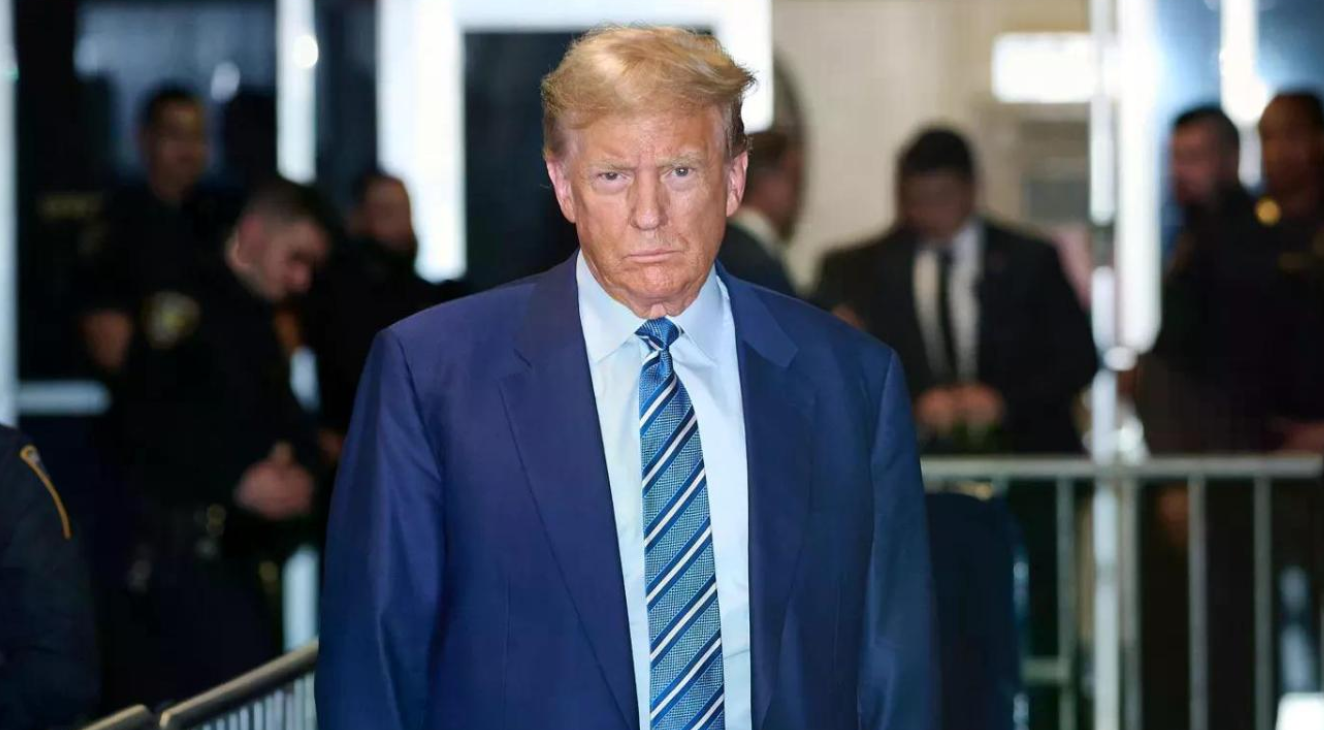



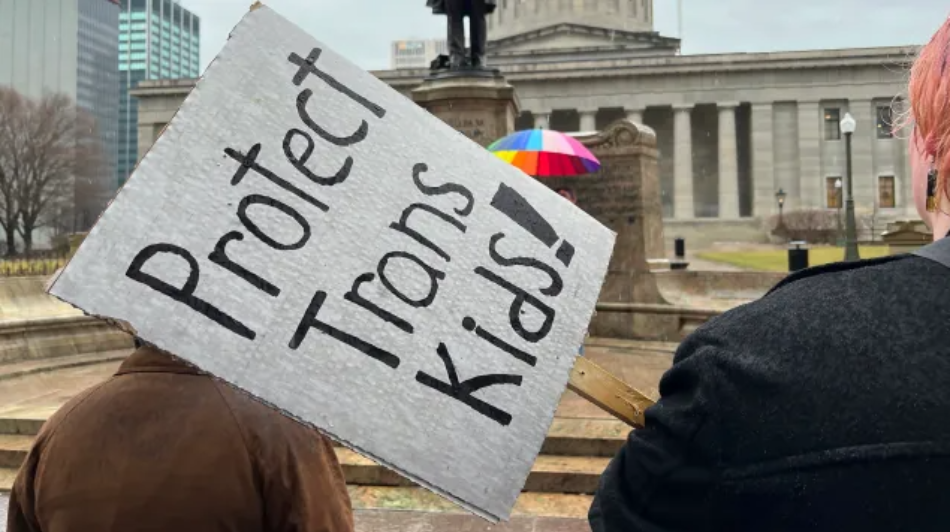
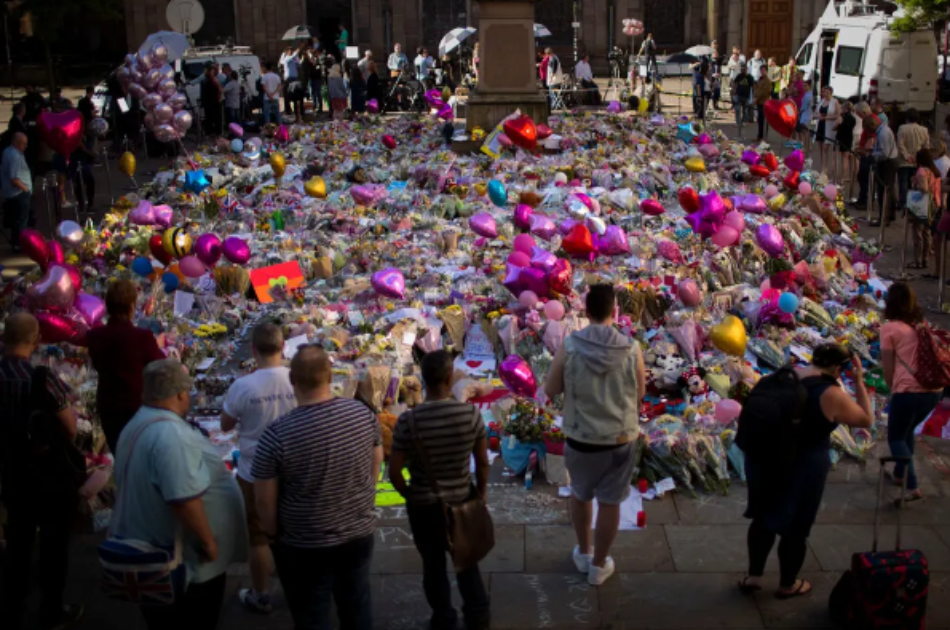





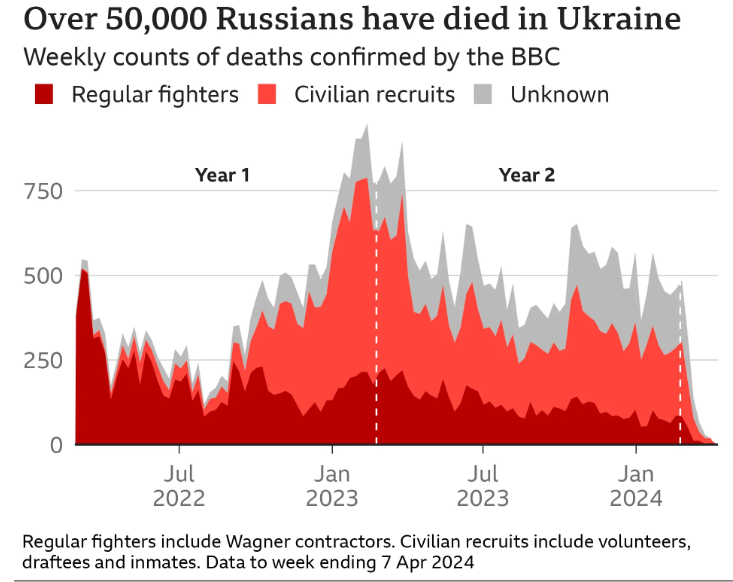



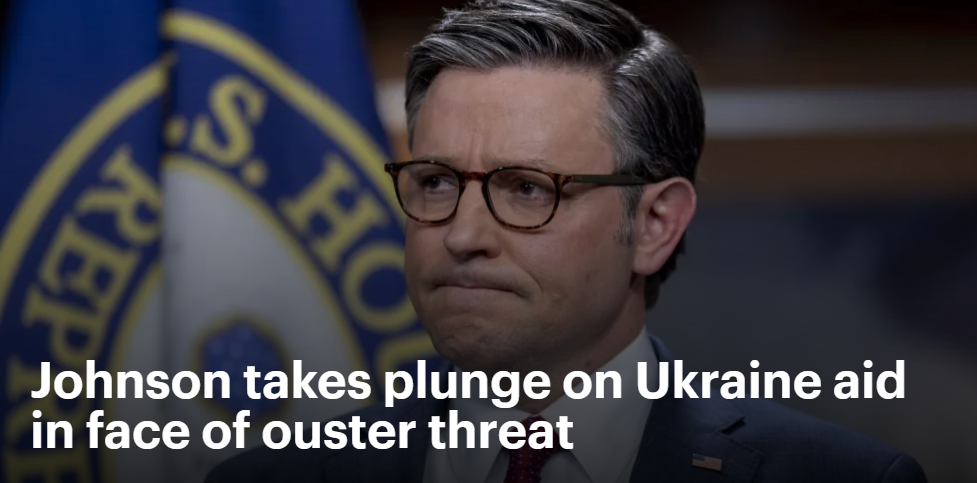
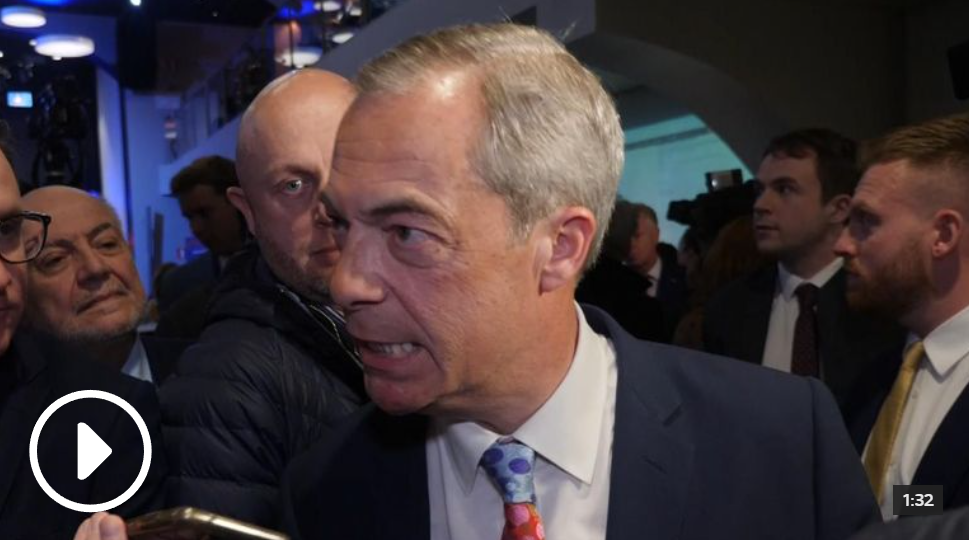
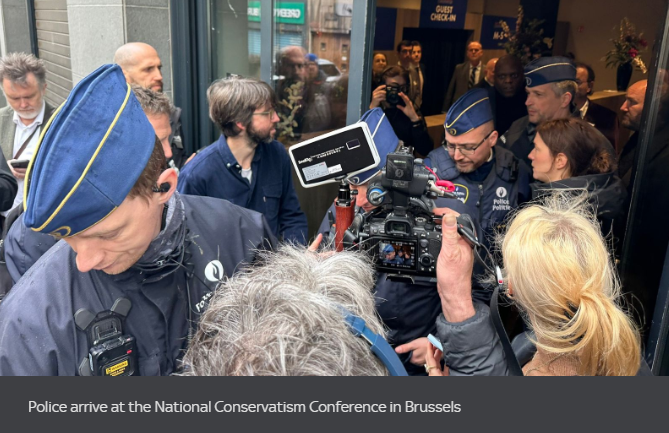
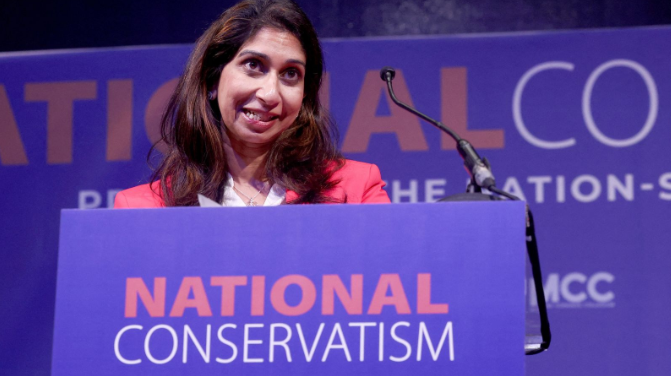
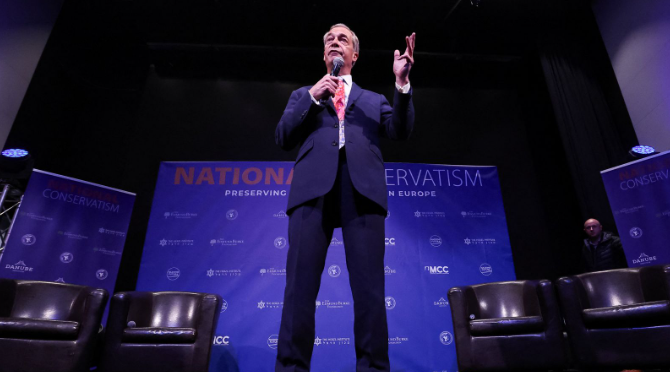
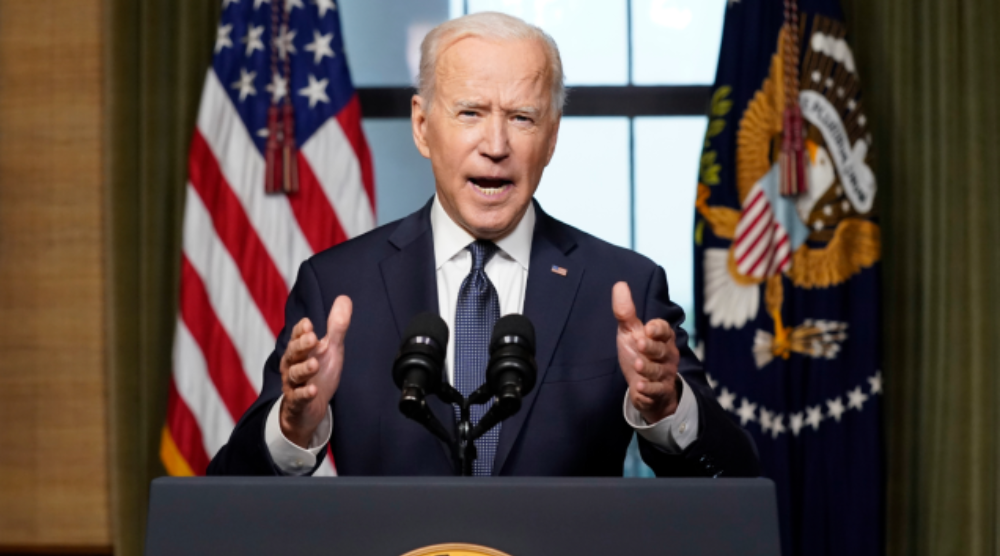

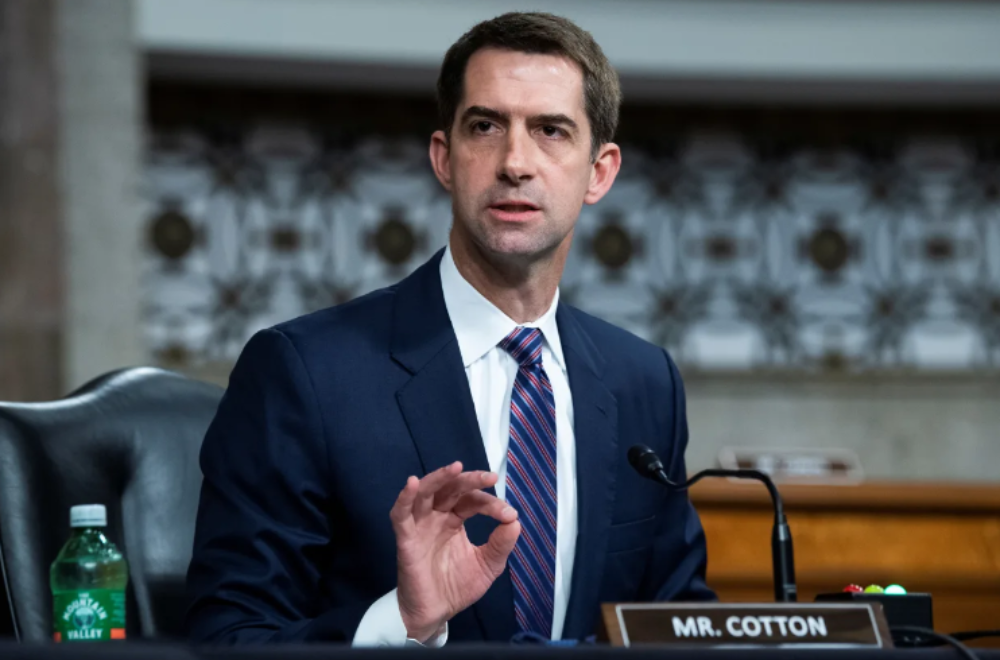

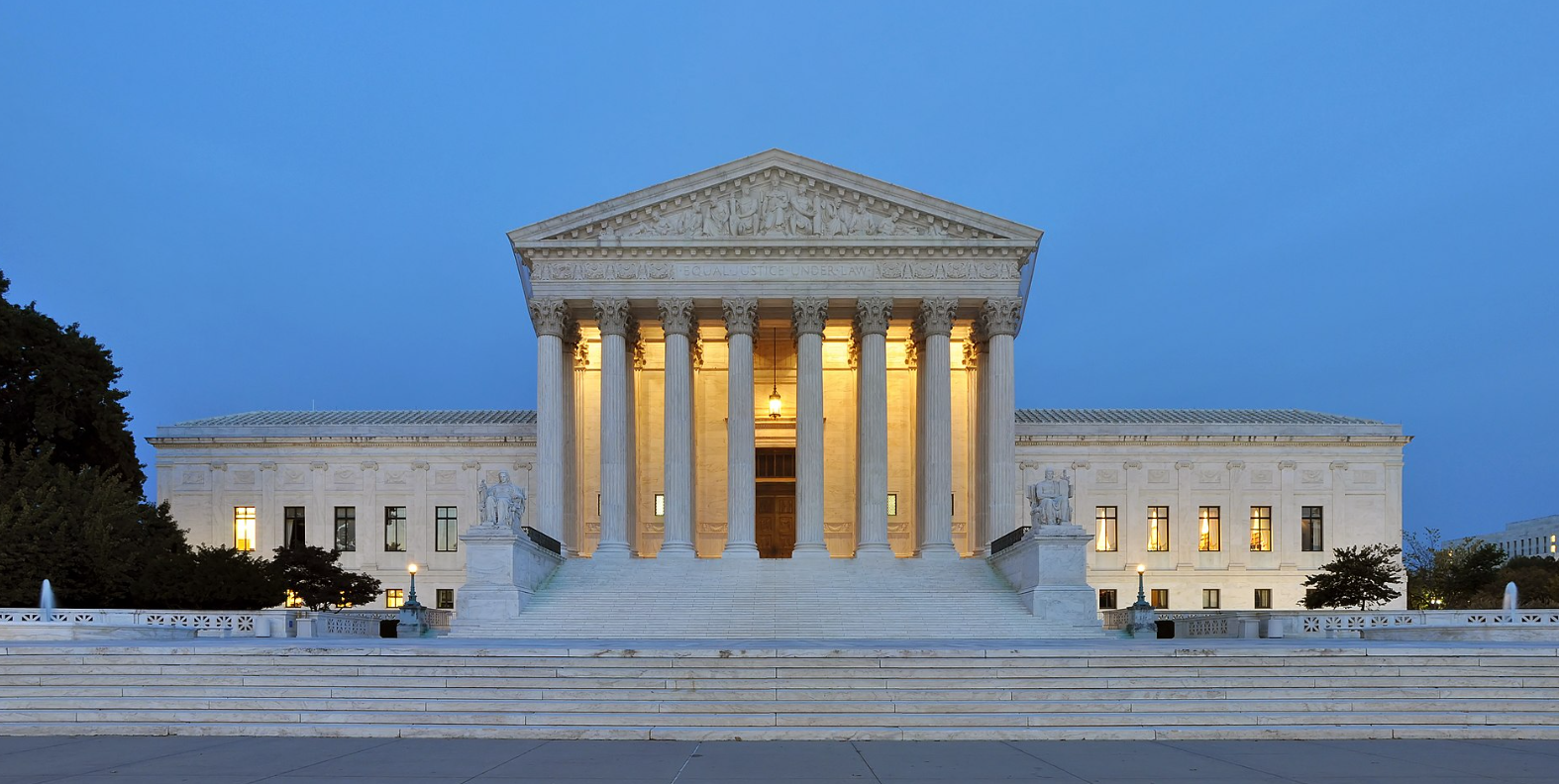

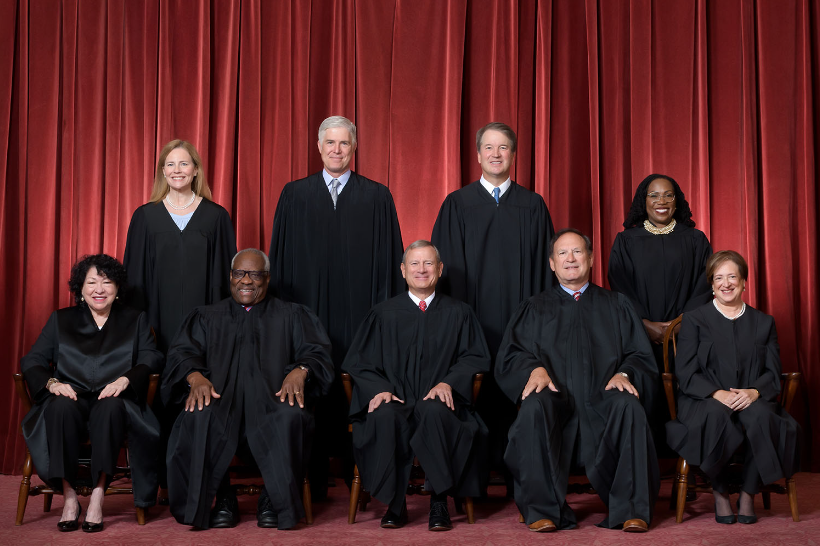
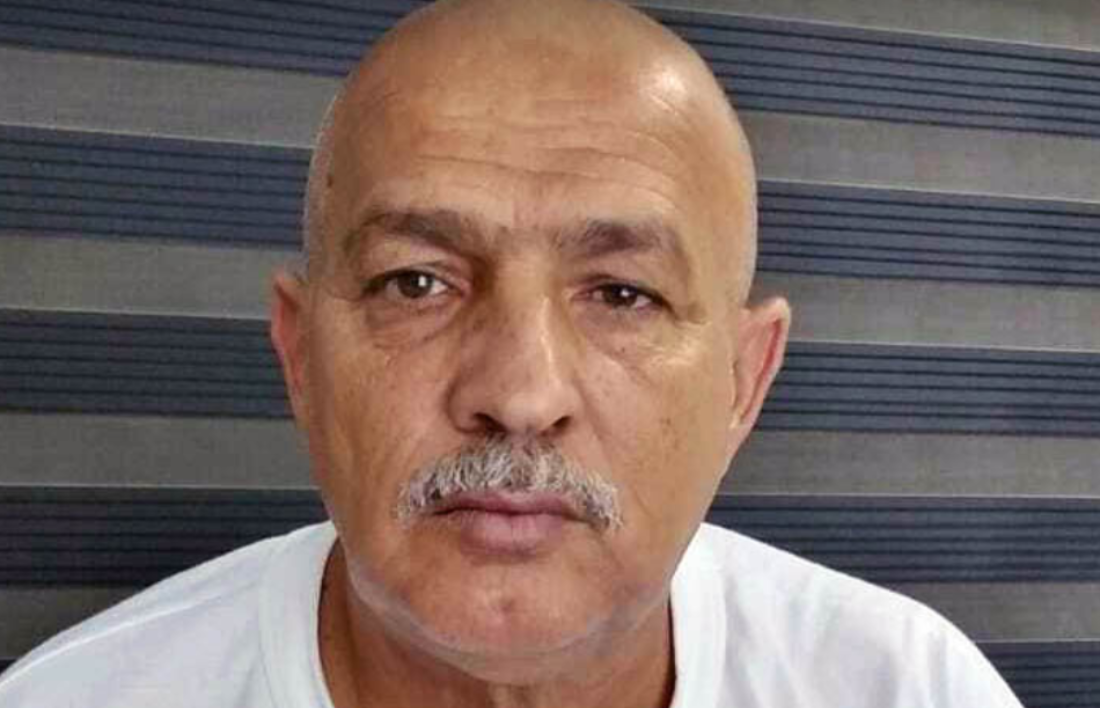

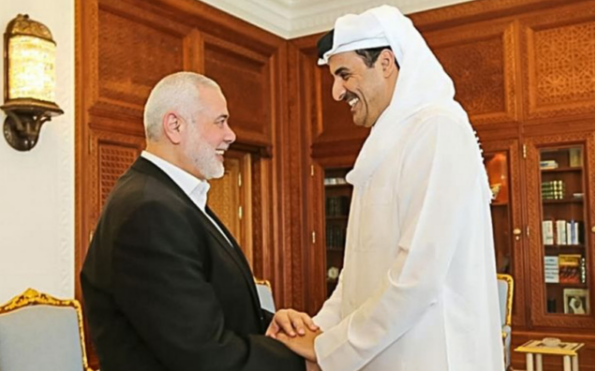



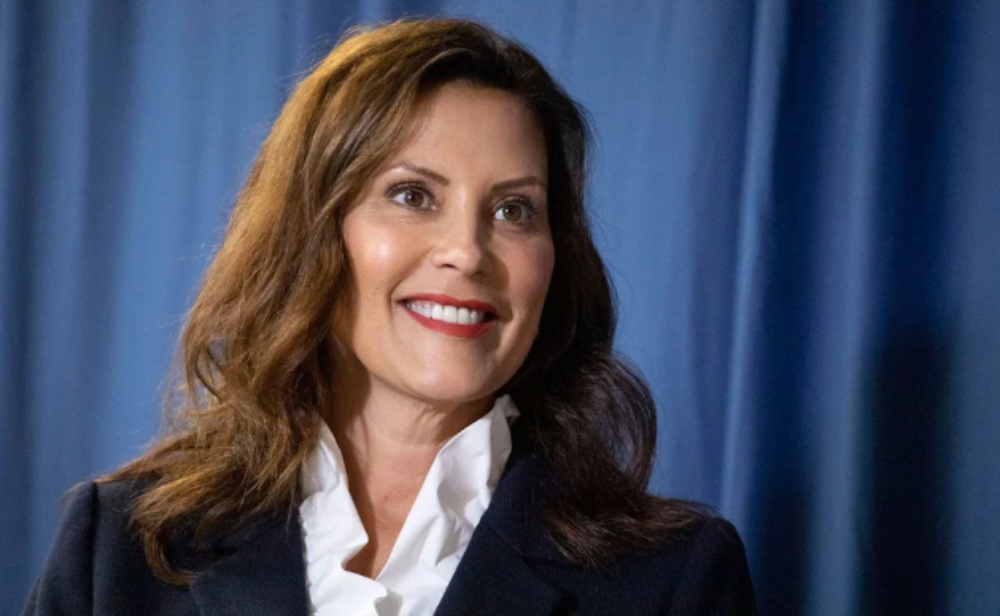

What to know about the seven jurors picked so far in the Trump hush money trial
in World News
Posted
The seven jurors picked so far for former President Donald Trump's hush-money trial paint a fascinating picture of Manhattan.
Why it matters: They're set to make history as they weigh Trump's fate in the first criminal trial against a former U.S. president — all while he runs for a second term.
Eleven more people — five jurors and six alternates — still need to be picked in the case. Dozens have already been dismissed because they said they couldn't be impartial, a sign of the complexity and unique nature of the case.
Here's what we know about who's been selected so far:
1. The foreman, who works in sales, lives in Harlem but is originally from Ireland.
2. A native New Yorker who's an oncology nurse.
3. A corporate lawyer originally from Oregon.
4. A self-employed IT consultant who lives on the Lower East Side but grew up in Puerto Rico.
5. A teacher and lifelong New Yorker. She was the only juror in the box who said they didn't know Trump was charged in three other cases.
6. A software engineer who works for Disney.
7. A lawyer who lives on the Upper East Side.
What's next: Jury selection is set to resume Thursday. Judge Juan Merchan is moving things right along: He said opening statements could start Monday morning.
18.04.24
Source